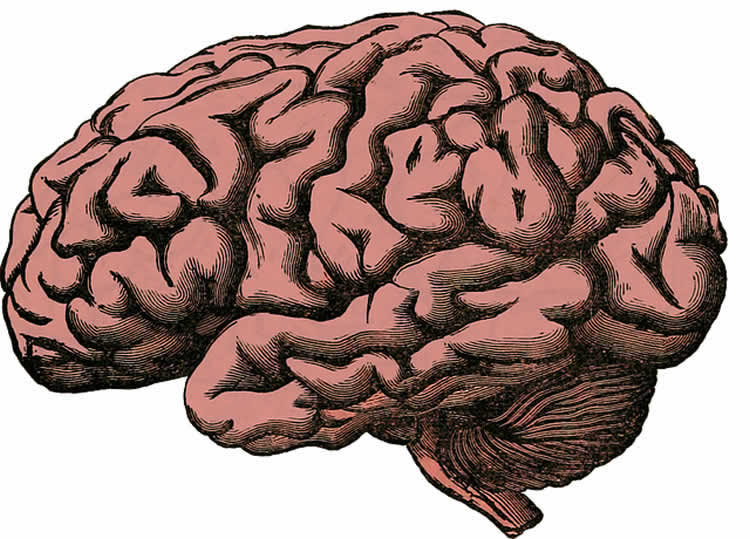In a new study that could have implications for future drug discovery efforts for a number of neurodegenerative diseases, scientists from the Florida campus of The Scripps Research Institute (TSRI) have found that the interaction between a pair of brain proteins has a substantial and previously unrecognized effect on memory formation.
The study, which was published November 19, 2015 by the journal Cell, focuses on two receptors previously believed to be unrelated–one for the neurotransmitter dopamine, which is involved in learning and memory, reward-motivated behavior, motor control and other functions, and the other for the hormone ghrelin, which has been connected to appetite as well as the distribution and use of energy.
“Our immediate question was, what is the ghrelin receptor doing in the brain since the natural ligand–ghrelin–for it is missing? What is its functional role?” said Roy Smith, chair of TSRI’s Department of Metabolism and Aging. “We found in animal models that when these two receptors interact, the ghrelin receptor changes the structure of the dopamine receptor and alters its signaling pathway. This is important because many drugs used currently in the clinic, for example for schizophrenia, have poor compliance because of adverse side effects. This discovery opens the door to using neuronal agents that indirectly modify dopamine signaling by pharmacologically targeting the ghrelin receptor–and potentially dramatically reducing side effects.”
“This concept has potentially profound therapeutic implications,” said Andras Kern, the first author of the study and a staff scientist in the Smith lab, “pointing to a possible strategy for selective fine-tuning of dopamine signaling in neurons related to memory. By using small molecules binding to the ghrelin receptor we can enhance or inhibit dopamine signaling.”
Challenging the current theory, which involves canonical dopamine signaling in neurons, the new study shows that the biologically active ghrelin-dopamine receptor complex produces synaptic plasticity, the ability of the brain’s synapses (parts of nerve cells that communicate with other nerve cells) to grow and expand, the biological process underpinning long-term memory formation.

In addition, when the researchers blocked the ghrelin receptor, dopamine-dependent memory formation was inhibited in animal models, demonstrating the mechanism is essential to that process.
Combined with conclusions from earlier studies that showed a significant role for the ghrelin receptor in neurons that regulate food intake, insulin release and immune system deterioration due to aging, the new study further expands the ghrelin receptor’s importance. In animal models, ghrelin inhibits neuronal loss associated with Parkinson’s disease, and stroke, Smith noted, and the new study underlines its possible role in treating memory loss, age related or otherwise.
“All in all, it’s a pretty amazing receptor,” he said.
In addition to Smith and Kern, other authors of the study, “Hippocampal Dopamine/DRD1 Signaling Dependent on the Ghrelin Receptor,” are Maria Mavrikaki, Celine Ullrich, Rosie Albarran-Zeckler and Alicia Faruzzi Brantley of TSRI.
Funding: This work was supported by the National Institutes of Health (grant R01AG019230).
Source: Eric Sauter – Scripps Research Institute
Image Source: The image is in the public domain
Original Research: Abstract for “Hippocampal Dopamine/DRD1 Signaling Dependent on the Ghrelin Receptor” by Andras Kern, Maria Mavrikaki, Celine Ullrich, Rosie Albarran-Zeckler, Alicia Faruzzi Brantley, and Roy G. Smith in Cell. Published online November 19 2015 doi:10.1016/j.cell.2015.10.062
Abstract
Hippocampal Dopamine/DRD1 Signaling Dependent on the Ghrelin Receptor
Highlights
•In hippocampal neurons GHSR1a and DRD1 forms heteromers in a complex with Gαq
•DRD1-induced hippocampal synaptic plasticity is dependent on GHSR1a and Gαq
•DRD1 mediated learning and memory is dependent on Gαq-PLC rather than Gαs signaling
•DRD1-induced hippocampal memory is regulated by allosteric DRD1:GHSR1a interactions
Summary
The ghrelin receptor (GHSR1a) and dopamine receptor-1 (DRD1) are coexpressed in hippocampal neurons, yet ghrelin is undetectable in the hippocampus; therefore, we sought a function for apo-GHSR1a. Real-time single-molecule analysis on hippocampal neurons revealed dimerization between apo-GHSR1a and DRD1 that is enhanced by DRD1 agonism. In addition, proximity measurements support formation of preassembled apo-GHSR1a:DRD1:Gαq heteromeric complexes in hippocampal neurons. Activation by a DRD1 agonist produced non-canonical signal transduction via Gαq-PLC-IP3-Ca2+ at the expense of canonical DRD1 Gαs cAMP signaling to result in CaMKII activation, glutamate receptor exocytosis, synaptic reorganization, and expression of early markers of hippocampal synaptic plasticity. Remarkably, this pathway is blocked by genetic or pharmacological inactivation of GHSR1a. In mice, GHSR1a inactivation inhibits DRD1-mediated hippocampal behavior and memory. Our findings identify a previously unrecognized mechanism essential for DRD1 initiation of hippocampal synaptic plasticity that is dependent on GHSR1a, and independent of cAMP signaling.
“Hippocampal Dopamine/DRD1 Signaling Dependent on the Ghrelin Receptor” by Andras Kern, Maria Mavrikaki, Celine Ullrich, Rosie Albarran-Zeckler, Alicia Faruzzi Brantley, and Roy G. Smith in Cell. Published online November 19 2015 doi:10.1016/j.cell.2015.10.062






